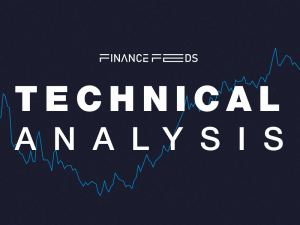Navigating volatile FX markets and the need to reconstruct trades
With August 24th marking 6-months on from Russia’s invasion of Ukraine, Oliver Blower, CEO of fintech VoxSmart, examines the growing importance of financial institutions reconstructing trades to protect themselves against volatility driven risks.

Nobody reading this article will be a stranger to the Dodd-Frank Wall Street Reform and Consumer Protection Act of 2010, brought in under the Obama administration. One of the key requirements put forward in this legislation was that financial institutions dealing in swaps (which let’s face it – is a great deal of them nowadays) must, within 72 hours of request, produce a time sequenced reconstruction of their swap trades. This requirement spans the entire lifecycle of a trade, from pre-trade communications all the way through to the swap expiration stages. It is mandatory for a whole host of asset classes, including FX swaps.
FX markets have been choppy throughout 2022, with a defining feature of the year being high levels of volatility in the asset class. This has been largely brought about since Russia’s invasion of Ukraine in February. From a trading perspective, the Russian invasion of Ukraine on February 24th 2022 led to a plethora of newly sanctioned bodies. What the ensuing market volatility also resulted in was a significant change in the market structure supporting trading in the Russian rouble. Over the course of a weekend, volumes on electronic trading venues (which accounted for nearly two thirds of rouble ADV in October 2021), dried up dramatically as trading was suspended. What this ultimately resulted in, was a situation where almost all offshore trading of the rouble went back in time, reverting back to bilateral and voice execution. Of course, it comes as no surprise that financial institutions responded to the macroeconomic shock by altering their trading behaviour to account for the need to reduce exposure to any assets linked to Russia.
The problem now facing these firms is that regulators are beginning to turn their attentions to trades that broke from established patterns, such as trades in the RUB, that have occurred since February. When it comes to Dodd Frank requirements, regulators could specifically ask to see reconstructed trades from swap deals in volatile currencies – especially when a lot of these trades were executed over the phone – rather than more transparent electronic trading venues. The challenge facing banks is that more often than not, their trade information and communication data sits in two entirely separate buckets; the manual process of sifting through these disparate data sets and connecting the dots between trades, particularly in periods where trading activity has been heightened due to volatility, is a headache. Add in the stringent 72-hour timeframe that they have to work towards, and it becomes more akin to a migraine that can’t be shifted.
However, by leaning on the support of automated technology solutions which connect communication and trade data, compliance teams can be empowered to check exceptional trades almost instantly. This ability to cut the manual work out of the process would allow for a complete shift in approach and culture – from reactivity to proactivity. Instead of waiting for the regulators to come knocking, compliance officers would be able to proactively approach regulators to demonstrate effective risk management and governance, building relationships to keep the ship steady during a period of market turbulence. Financial institutions consume and store absolutely mammoth amounts of information – it won’t be a foreign struggle to anyone that getting full use of this data is another story entirely. This is where embracing the benefits of modern technology solutions really start to show their true worth.
Ultimately, the firms who embrace the benefits of modern technology solutions when it comes to reconstructing trades in FX markets, are the ones who will be able to be proactive in plotting a safe course as the unpredictable trading landscape continues to evolve.

Oliver Blower, CEO of VoxSmart has 20 years experience building businesses in FinTech, Crypto and Global Capital Markets. He is also an experienced ex-trader, having worked at Barclays and Bank of America









